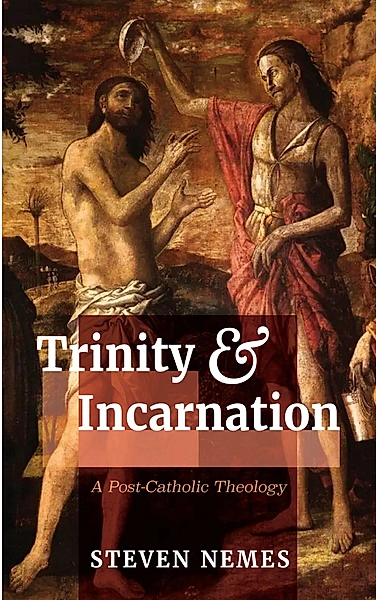Podcast: Play in new window | Download
Subscribe: Spotify | Email | RSS

The thing about objecting to Trinity theories is that they are many and different, and generally speaking mutually inconsistent, so that an objection which applies to one Trinity theory will not apply to others.
But in chapter 3 of his new book Trinity and Incarnation: A Post-Catholic Theology, Dr. Steven Nemes gives a destructive tetralemma argument which applies to Trinity theories generally. This argument appeals only to the idea of ontological priority, then asking questions about the one ousia (substance, essence, nature) and the three hypostases (“Persons”): is (1) the ousia prior to the hypostases, or (2) are the hypostases prior to the ousia, or (3) are these all distinct but none is “before” or “after” any other, or (4) are the ousia and the hypostases not distinct (and so none is “before” or “after” any other)?
These are arguably all the options. But whichever way the trinitarian turns, it looks like his choice results in inconsistency with something else he’s committed to, such as divine simplicity or divine “processions.”
Dr. Nemes in effect is issuing a challenge to catholic theologians: how can you pick one of those four options and yet not contradict other theses to which you’re committed?
At the end of the episode, we discuss another argument, which is a 2-case dilemma. Does the divine nature imply or include tripersonality, or not? Either way, there would seem to serious problems for the trinitarian!
Links for this episode:
Trinity and Incarnation: A Post-Catholic Theology
Theological Authority in the Church: Reconsidering Traditionalism and Hierarchy
Theology of the Manifest: Christianity without Metaphysics
Eating Christ’s Flesh: A Case for Memorialism
podcast 355 – Dr. Steven Nemes on Trinity theories – Part 2
podcast 354 – Dr. Steven Nemes on Trinity theories – Part 1
Brower and Rea, “Material Constitution and the Trinity“
Tuggy, “Constitution Trinitarianism: An Appraisal“
Tuggy, “Divine deception, identity, and Social Trinitarianism“
Tuggy, “Antiunitarian Arguments from Divine Perfection“ (on arguments that if there is one divine Person then there must be exactly three)
This week’s thinking music is “PHENIX” by Koi-Discovery.

If I correctly understand the direction, I have reflected on the issue of the ousia of the hypostases… which would necessarily be distinct – thus creating a deity that has 4 distinct ousias… quite a fabulous notion…
Comments are closed.